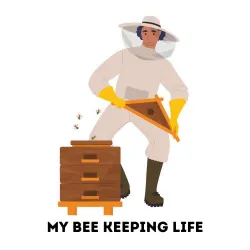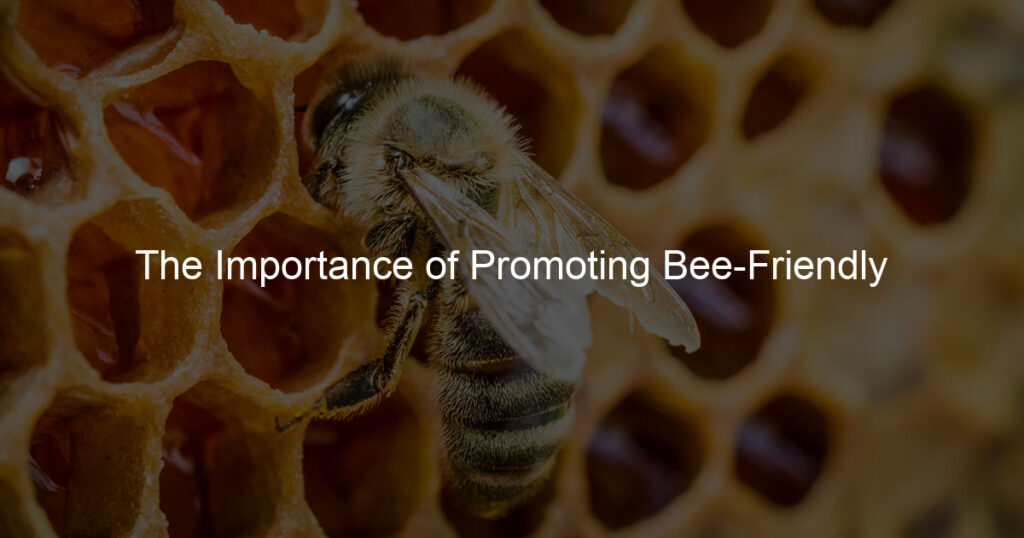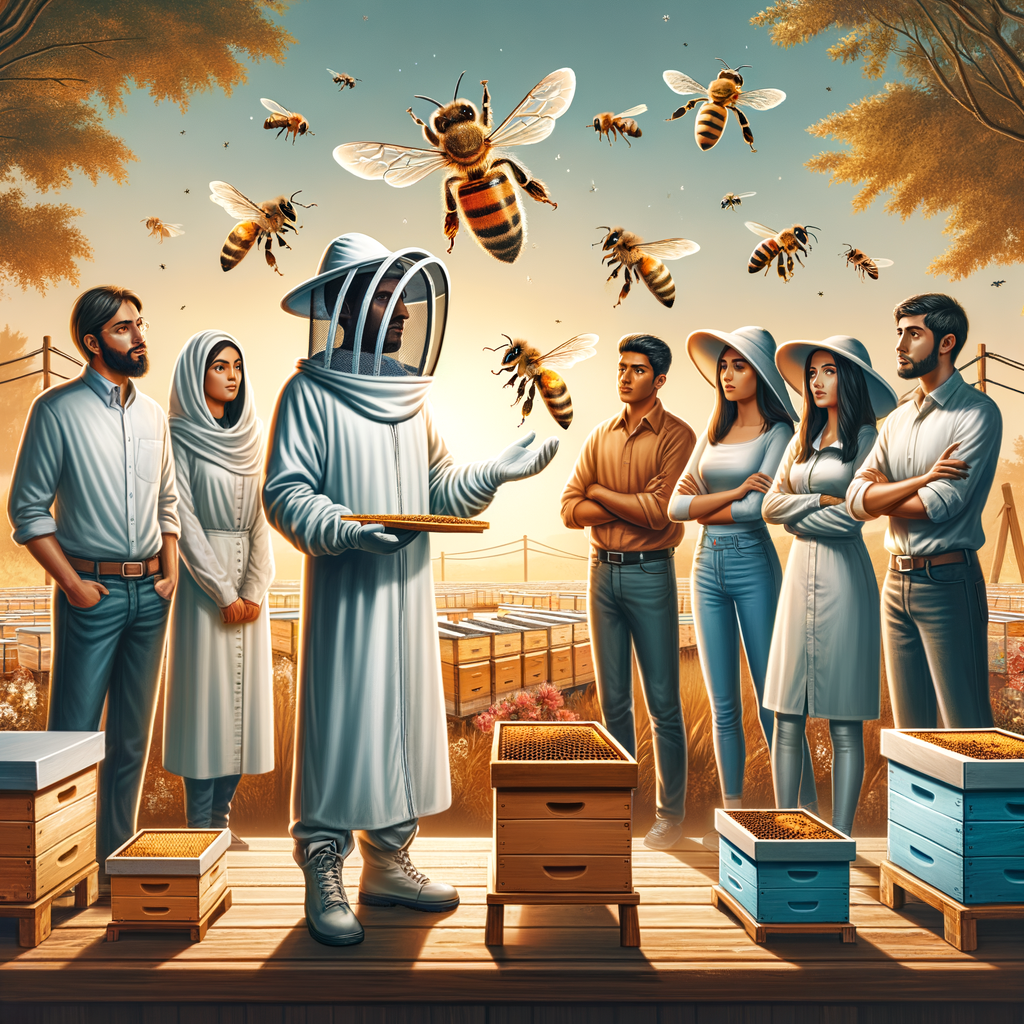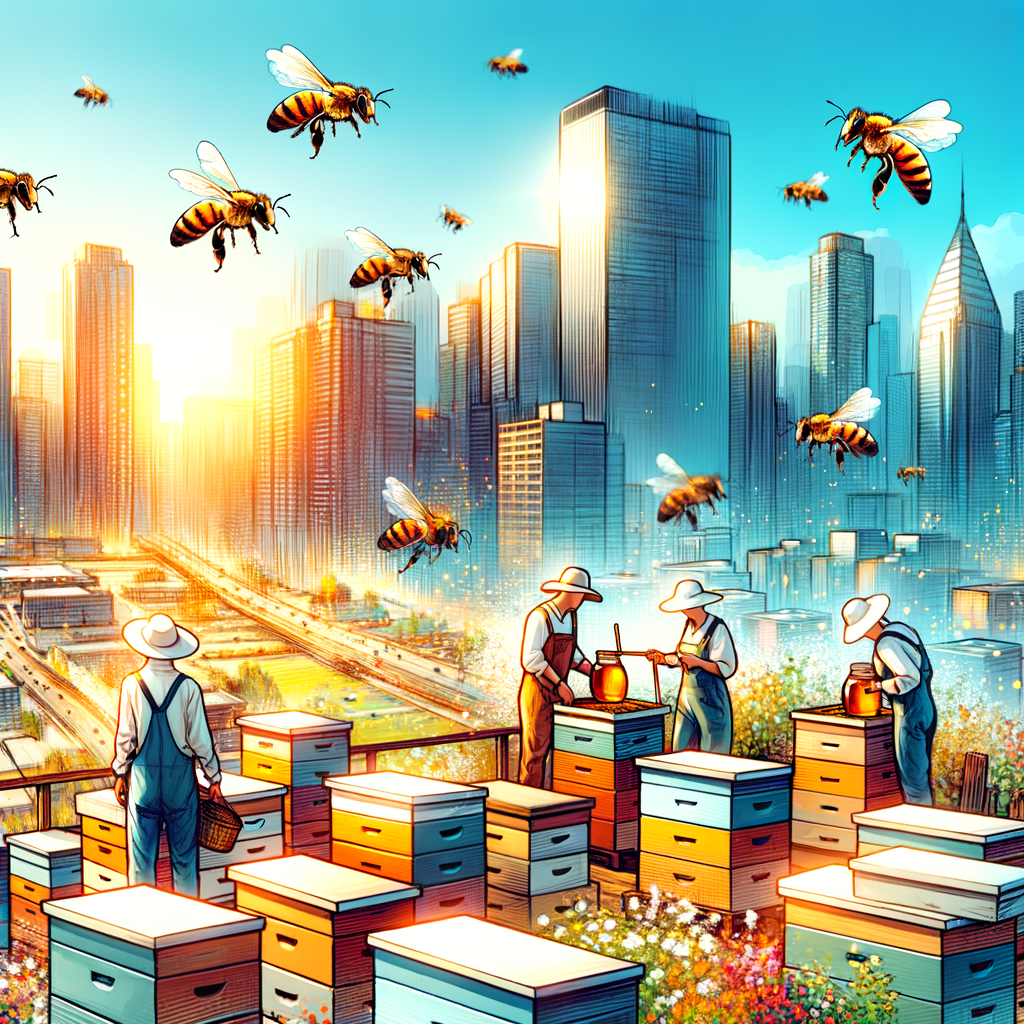Did you know that bees are critical to the pollination of many crops and plants? They play a vital role in our food system, and yet they’re declining at an alarming rate.
One major reason for this decline is the loss of bee-friendly habitats, especially in urban areas. This is why it’s so important to promote bee-friendly landscaping in cities!
By planting flowers and creating spaces that welcome bees, we can help them thrive. Read on to learn more about why bees are essential and how you can create a bee-friendly landscape in your city.
Why are bee-friendly plants important?
Bee-friendly plants are integral to the future of our planet, yet their importance is often overlooked. Bees play a critical role in pollinating flowers and crops, helping to ensure that the food supply remains healthy.
Without bees, there would be a decrease in crop yields which would lead to economic, environmental, and social consequences. Moreover, having flowering plants that are attractive to bees helps increase biodiversity in areas where it might have otherwise been lacking.
This allows other insect species – like ladybugs and butterflies – to thrive as well, creating a better ecosystem for all creatures to live in. By planting bee-friendly plants we can support the ecosystem and ultimately help shape the planet’s future for the better.
Why are bees important to the environment?
Bees are incredibly important to the environment, aiding in the pollination of plants in almost every ecosystem. Oftentimes referred to as ‘Nature’s Gardeners’ bees help propagate a variety of crops around the world, making them vital for food security.
Almost one-third of the world’s food depends on pollination from honeybees alone! Beyond their agricultural assistance, the colorful little creatures provide additional environmental services too: they help regenerate habitats and preserve biodiversity by increasing plant species richness and abundance.
Without bees running around buzzing and collecting pollen, our planet’s species diversity would take seriously hit-making these tiny workers essential for maintaining entire ecosystems.
How bees are influenced by local and landscape features?
Bees are often seen as industrious and necessary pollinators, but what many people do not realize is that their distribution and even behavior can be greatly influenced by local and landscape features. Bees are incredibly sensitive to changes in land cover, such as vegetation type, elevation, and even water availability.
This sensitivity is why cutting down trees and keeping only a small patch of flowers could have detrimental effects on a bee population. Furthermore, many species of bees will show different preferences for certain nectar based on the types of plants in the area.
For example, some subspecies may favor flowering shrubs while others might prefer flowering trees or herbs depending on where they live. It’s important to recognize how our local environment affects bees so that we can make informed decisions about how to conserve their populations and ensure that essential pollination continues.
Why are bees important in preserving biodiversity?
Bees are a vital part of the ecosystem and play an essential role in preserving biodiversity. Their pollination activities not only keep plants alive, but they generate genetic diversity among them. Without bees, many of the flowering plants that animals rely on for food would eventually die off.
Additionally, bee populations act as indicators of health in local ecosystems. If a bee population starts to decline, it could be an indication that something is wrong in the environment and other species may be at risk as well.
It’s clear that bees are vitally important for ensuring biodiversity around the world and it’s our job to protect them so this delicate balance does not become disrupted.
Why bees are critical for achieving sustainable development?
Bees are the unsung, hardworking heroes of sustainability. They are instrumental to a healthy environment and crucial for achieving sustainable development.
The primary function of bees is to pollinate plants, increasing crop yields and food security for communities around the world, but their benefits extend far beyond their agricultural role. Through their production of honey and wax, bees also provide humans with essential products and sales opportunities that create jobs and generate income.
What’s more, as top-tier members of the food chain, they help maintain stability in our ecosystems by providing an important link in the cycle of life. Without bees pollinating our crops, this delicate balance would be significantly disrupted – potentially leading to species extinction, soil degradation, and decreased air quality.
That said, it is clear that preserving the health and prosperity of bees is one of the most meaningful ways to contribute to environmental well-being and ensure sustainable development for all.
To Conclude
The key takeaway is that promoting bee-friendly landscaping in urban areas could be a game changer when it comes to bee conservation. Easy steps such as planting more native species and encouraging refraining from pesticide use can go a long way, not only in terms of improved bee health but also in terms of creating an aesthetically pleasing urban landscape that brings people together and benefits the environment.
Additionally, with further research and development of strategies, such initiatives can prove to be an effective antidote for the loss experienced by bees. We are all aware of the many benefits that bees have provided us with, so let’s do our part by becoming bee-friendly!








